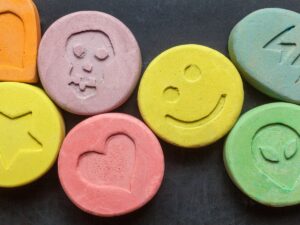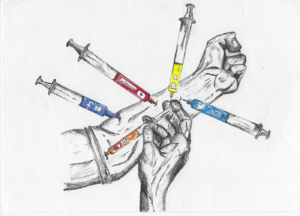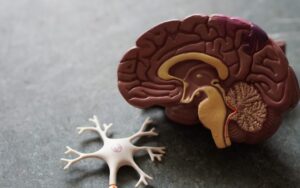It’s a helpless place to operate from. The longer addiction holds on to someone you love, that helplessness starts to shift and slide into outright hopelessness.
Helping someone with drug abuse is understandably uncharted territory for most. Sure, there’s some innate level of care that we’re equipped to give as humans but it’s limited in scope and detail. Ultimately, dealing with substance abuse is just not something we learn in school or are naturally prepared to handle.
The questions then become, what to do when someone is addicted to drugs? How can we get them the help they need?
Most importantly, and like with all things in life, the more you know, the more you can help them navigate their way to treatment and sobriety.
Signs My Friend Is Addiction to Drugs
Step 1 is just to be a careful observer and look for the signs of addiction. Drugs affect the whole of a person so the symptoms stretch across the physical, behavioral and psychological.
While signs may start as barely noticeable, they can morph into impossible to miss red flags quickly:
Physical Signs of Drug Addiction
- Poor coordination
- Slurring speech
- Bloodshot eyes
- Tremors and shakes
- Significantly changed sleeping patterns, either getting too much or too little
- A general lack of attention for personal hygiene and a broad worsening of physical appearance
- Bizarre smells on body and breath
- A shift in eating habits and sudden weight fluctuation up or down
- Cravings
- Experiencing withdrawal symptoms after stopping
Behavioral Signs of Drug Addiction
- Increasingly absent from responsibilities related to school, family, work, etc.
- Diminishing performance at work or school
- Borrowing or even stealing to fund their addiction
- Financial and legal troubles
- A complete inability to cut back on using
- Overly secretive about activities and whereabouts
- Mysterious absences and withdrawing from society
- A change in habits/priorities and increasingly riskier behavior
- Starting to hang with new friends
- Continuing to use drugs despite the troubles they’re obviously creating
Psychological Signs of Drug Addiction
- And overall lack of motivation
- Lethargic
- More and more irritable
- Moodiness and outbursts
- Anxiety
- A noticeable change in personality
- Paranoia
- Depression
On top of all of those warning signs, you’ll start to see a marked increase in their tolerance. As in, they need to take increasingly larger amounts of their substance of choice in order to achieve the highs they once did. Their body has simply gotten used to those previous levels and the drugs don’t pack the same punch. Of course, the longer they use and the more their tolerance grows, the risk for overdose becomes significantly higher.
What to Do When Someone Is Addicted to Drugs
Your friend or family member needs to be guided and lead to treatment and that is certainly something easier said than done.
As mentioned at the top, knowledge is power in this case. Understanding what recovery is and what the road to sobriety looks like makes it easier to explain. Learning about the various options that are out there also means you can find something best suited to their needs.
You’re eventually going to have to have that “talk” and address the issue. Being equipped with tangible, real solutions is therefore imperative. Additionally, you’ll want to avoid any type of accusing, harsh or blaming type language and instead come from a place of compassion. You’re much more likely to yield positive results that way as opposed to the confrontational approach which often stifles progress.
Reach Out to the All American Detox Team Today
This is a difficult position to be in though, we understand that at All American Detox. We’ve been at this for a long while and have 30+ years of experience in treating substance abuse. If you need help with having that conversation, call us and let us give you the tools necessary to get them to recover and work towards a fulfilling life of sobriety.





